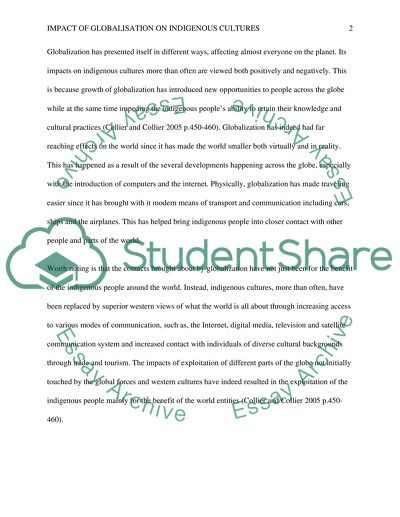Cite this document
(“Impacts of Globalization on Indigenous Cultures Essay”, n.d.)
Impacts of Globalization on Indigenous Cultures Essay. Retrieved from https://studentshare.org/anthropology/1453500-what-impact-has-globalisation-had-on-indigenous
Impacts of Globalization on Indigenous Cultures Essay. Retrieved from https://studentshare.org/anthropology/1453500-what-impact-has-globalisation-had-on-indigenous
(Impacts of Globalization on Indigenous Cultures Essay)
Impacts of Globalization on Indigenous Cultures Essay. https://studentshare.org/anthropology/1453500-what-impact-has-globalisation-had-on-indigenous.
Impacts of Globalization on Indigenous Cultures Essay. https://studentshare.org/anthropology/1453500-what-impact-has-globalisation-had-on-indigenous.
“Impacts of Globalization on Indigenous Cultures Essay”, n.d. https://studentshare.org/anthropology/1453500-what-impact-has-globalisation-had-on-indigenous.


